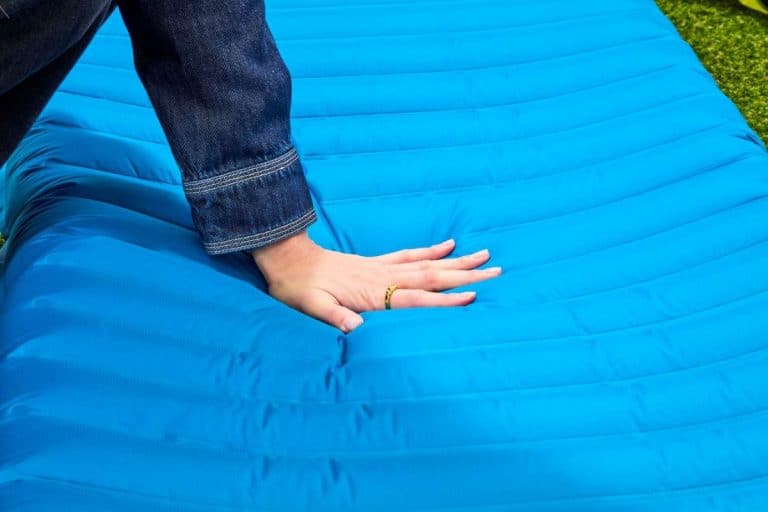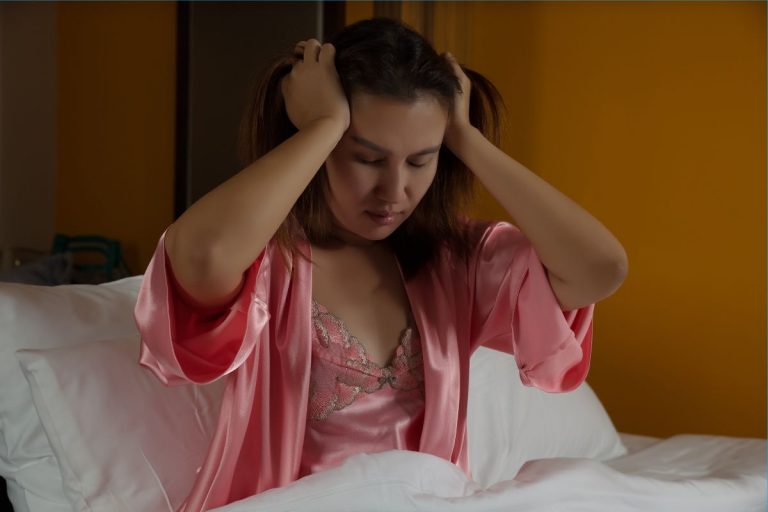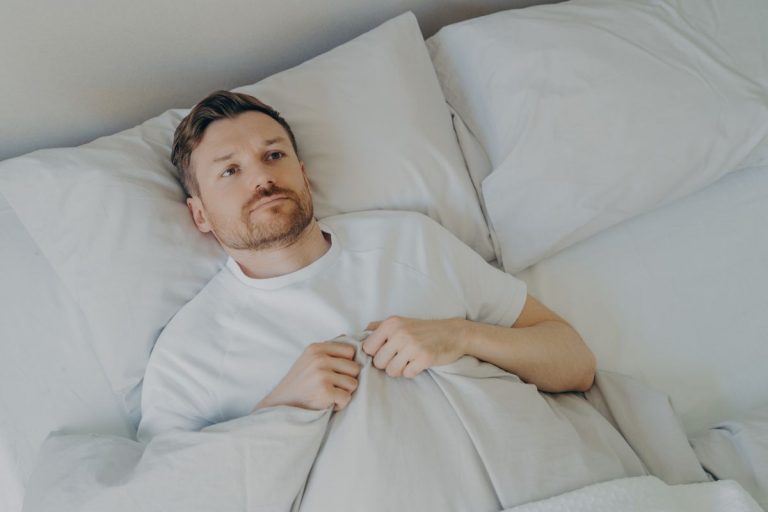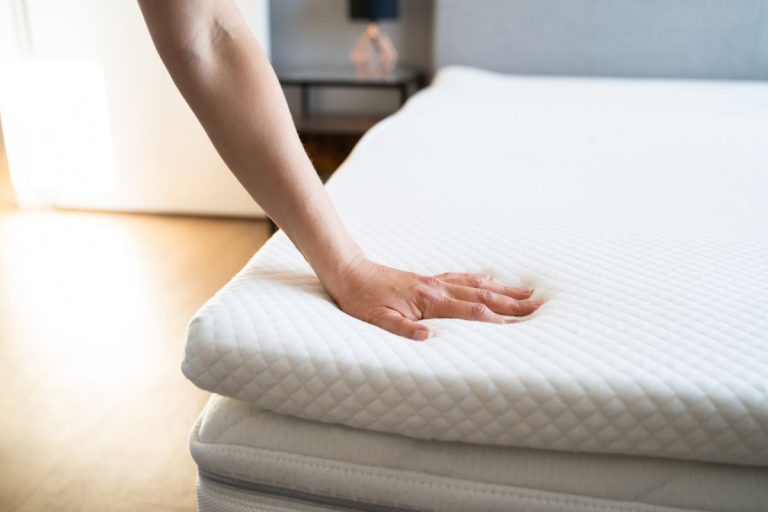Getting a good night’s sleep after any surgery can be pretty difficult. However, sleeping after shoulder surgery, and finding the right position is probably one of the most difficult things you’ll experience during the recovery period. That is why many people experience post-op sleep deprivation, which can affect the recovery process, or even slow it down.
So, it is essential one finds a natural, pain- and pressure-free position in order to get some sleep and let the shoulder recover. But, how? Well, luckily, we’ve got some tips and tricks you can utilize in case you struggling with sleep after your shoulder surgery. So, let’s get started!
Shoulder Surgery – Types Of Surgery
There can be numerous variations of a shoulder injury. And, in that respect, there can also be many different types of shoulder surgeries.
So, before we tackle the sleeping recommendations, we need to understand the different surgery types and how they affect one’s recovery in regards to sleep.
Open Surgical Shoulder Repair
Open surgical assistance or repair is required in case of a fractured head of the humerus, or the upper arm bone.
The open surgery requires an incision onto the shoulder for a better view and an easier shoulder reconstruction if needed. Such surgery is common and has become a traditional approach to the repair of the upper arm bone.
Rotator Cuff Surgery
Rotator cuff surgery is one of the most common surgical procedures when it comes to damage to the shoulder. The damage precisely affects the rotator cuff muscles and tendons, and when the pain in this area becomes overwhelming, the doctor recommends a surgical repair.
The surgery often comprises a repair of the tear in a procedure known as debridement. In another form of the surgery, the tear is fixed by re-attaching the tendon to the humerus, or the upper arm bone. Bot procedures are incredibly effective.
Arthroscopy
When it comes to shoulder damage cases like dislocation, rotator cuff injury, or shoulder blade fractures, arthroscopy is the necessary procedure.
This surgical procedure comprises an insertion of a thin device into a small shoulder incision. During the procedure, the surgeon will examine and repair the tissues around the shoulder joint, with the help of the camera and the lights which are located on the arthroscope.
Acromioclavicular AC Joint Surgery
In the case of this surgery, there is significant damage to the acromioclavicular joint. This joint represents the very meeting point of the collar bone and the shoulder blade.
In case of such injury, one experiences significant pain and limited mobility. But, the surgery manages to repair the joint by repositioning the clavicle to enable movement, of by removing the end of the joint.
Both ways provide exceptional results and in almost all cases the patient regains full mobility.
How To Sleep After Each Shoulder Surgery?
Sleeping After Open Surgery Shoulder Repair
Best sleeping position: reclined position, or sleeping in a recliner
After an open surgery shoulder repair, it is best to spend the next few weeks sleeping in a reclined position or sleeping in a recliner. This position is exceptional not just for this type of shoulder surgery, but basically any other shoulder procedure.
The reason doctors emphasize the importance of the recline position lies in the following factors;
- Sleeping in a recline position removes pressure from the collar bone, the neck, head, and shoulder area.
- The recline position prevents any pressure or pain onto the shoulder area since it prevents sleeping on the side or moving the arms above the head.
- The recline position prevents unnecessary muscle work in the shoulder area, which is the case when lying horizontally.
- Sleeping in a recline position can improve the shoulder recovery and shorten it to a month max.
So, after we’ve checked all the benefits of this sleeping position, one cannot help but ask; how can I exactly sleep in a recline position? Here are some tips;
- Purchase a recliner – we recommend you check out the Esright Massage Recliner Chair, which is designed to provide a full recline while supporting your lower back and removing pressure from the upper back, neck, and shoulder area. Recliners can be fairly inexpensive, and serve your good sleep even after the shoulder recovery.
- Go nuts with the pillows – try to use pillows while lying to provide support and elevation for your upper back, neck, and head. This may not be the ideal way to sleep in a reclined position, since the pillows tend to slip off the bed while you sleep. However, it can serve as a temporary solution. Pillows can be easily adjusted to fit your sleeping position the best, so try to take full advantage of that at least.
- Purchase a wedge pillow – if you want to stick with the pillows, we recommend you go for a medical wedge pillow. The Brentwood Zuma Wedge Pillow is specially designed to provide support for the upper back, head, and neck, as well as to relieve shoulder pain.It has a gradual slope that isn’t too high, so you’ll be able to get proper sleep without feeling like you’re sitting or aggravating your lower back.
Note: We recommend you sleep in a reclined position for at least 4 to 6 weeks after shoulder surgery. This way you’ll ensure proper and full shoulder recovery since you’re not putting any pressure on the treated area.
Sleeping After Rotator Cuff Surgery
Best sleeping position: reclined position + wearing a sling
After the rotator cuff surgery, doctors recommend sleeping in a reclined position, just like with the previous, open shoulder surgery.
However, to ensure better security during sleep, it is also recommended to wear a sling while sleeping. Wearing a sling will;
- Keep your arms stable during sleep
- Prevent unnecessary movement during sleep
- Prevent accidentally sleeping on the injured side/operated shoulder
- Prevent you from unconsciously placing your arm in a painful and uncomfortable position
- Promote faster and better shoulder healing
Note: Again, we recommend you either get a recliner chair or buy a medical wedge pillow, which is an even better investment. However, sleeping in a reclined position while wearing a sling might be a bit difficult. That is why we recommend you place a pillow under your arm as well, just to give it some elevation and proper height while sleeping reclined.
Also, if you feel like your muscles are atrophying because you’re wearing a sling every night, try to wear it at least every other night, or a few times a week. We don’t want you to immobilize your arm too much since it can cause muscle atrophy and other negative effects on your recovering shoulder.
Sleeping After Arthroscopy And Acromioclavicular Joint Surgery
Best sleeping position: reclined position + wearing a sling
Just like with the previous two shoulder surgeries, sleeping after arthroscopy and acromioclavicular joint surgery also require sleeping in a reclined position.
You don’t have to necessarily sleep like this, since sleeping horizontally may also do the work, but it is more likely to put unnecessary pressure on the shoulder and cause pain. Instead, try to sleep in an elevated position, or even completely upright, as some doctors recommend.
Sure, it may be difficult to get used to, and uncomfortable, but this is the best way to remove pressure from the shoulder and allow it to heal completely.
Now, when it comes to the sling, we’d say it’s optional in these cases. However, if you want to make sure you don’t hurt your shoulder during sleep (as you accidentally roll over on the painful side, or move your arm improperly), then you should definitely wear a sling during sleep.
We also recommend you prop up the arm with a pillow, just so much that you can see your elbow. It is essential you place the pillow between the shoulder and the torso, which would ensure proper blood circulation and prevent cramping or numbness.
What about Other Sleeping Positions?
Sleeping On The Side After Shoulder Surgery
Sleeping on the side after shoulder surgery can strain your muscle unnecessarily and put pressure on both the good and the operated shoulder.
Therefore, sleeping on the side right after surgery is a bad idea. It can prevent proper shoulder recovery and cause further pressure and pain.
However, you can try sleeping on the side after a few weeks, only if your doctor approves, of course. Otherwise, stick to the reclined position and watch your shoulder heal quickly and pain-free.
Sleeping On The Back After Shoulder Surgery
Sleeping on the back might be the second-best option after the reclined position. It does promote even bodyweight distribution and prevents possible strains on the recovering shoulder muscles.
However, sleeping horizontally can also cause extreme discomfort, resulting in restlessness and unnecessary (and possibly painful) tossing and turning.
In order to enjoy sleeping on the back without hurting your shoulder, you will have to use tons of pillows to pro pup your arm and shoulder, as well as to keep your head and neck elevated without straining the muscles.
How To Handle Post-Op Shoulder Pain During Sleep?
Here are some further tips on how you can reduce post-op shoulder pain to get a good night’s sleep;
- Take prescribed and approved medication before bedtime – this will mitigate the pain and ensure a more comfortable sleep. Take either the approved over-the-counter medication or the medication prescribed by your doctor. You should take the medication at least 30 minutes before bedtime.
- Purchase a cold compress unit – a cold compress unit for your shoulder can be a great way to mitigate pain before bedtime. The unit functions as an ice-pack but is placed around the shoulder. This is especially recommended after the arthroscopic surgery.
- Wear a sling – wearing a sling during sleep can make any sleeping position more comfortable and bearable. A sling will prevent any pressure on the shoulder, keep the tension off the shoulder muscles, and help you avoid any accidental injury during sleep.When wearing a sling, make sure to place a pillow between the shoulder and the torso, for additional comfort and proper blood circulation in the arm.
Final Thoughts
Getting proper sleep after shoulder surgery will be difficult. However, we hope that our recommendations, alongside your doctor’s advice, will provide some relief and comfort during sleep.
Remember; it is essential to avoid sleeping on the side and to always prop up your upper body and the arm of the operated shoulder. This way you’ll prevent putting pressure on the shoulder and the shoulder muscles, as well as avoid pain-causing movements.
If the pain doesn’t mitigate after several weeks, make sure to contact your doctor for further consult.





